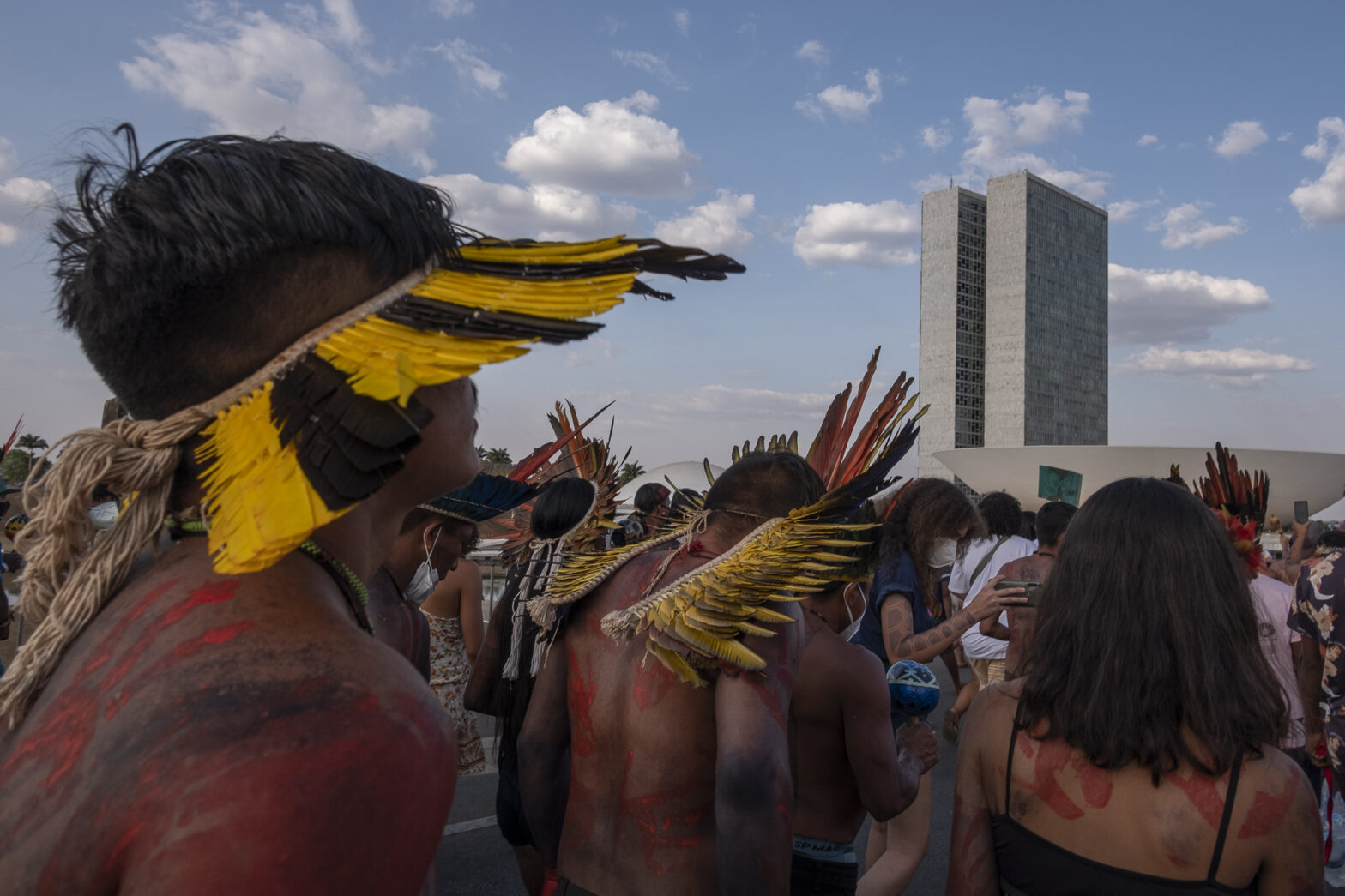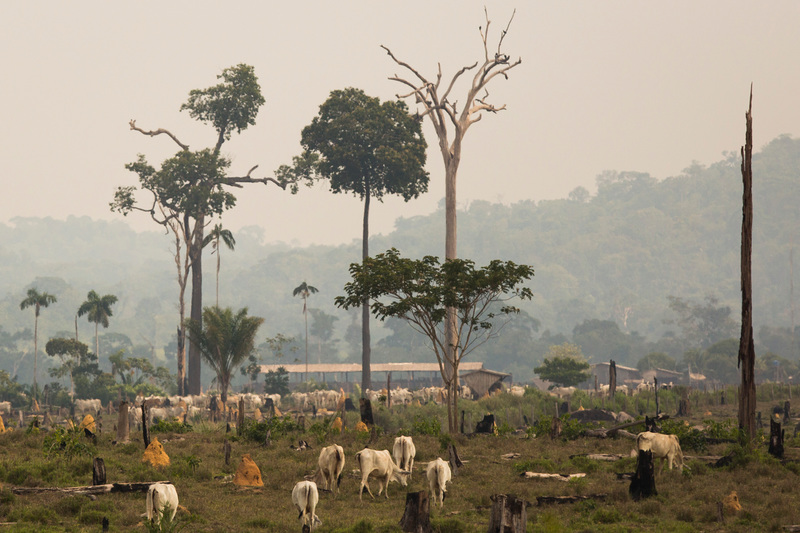Everyone will suffer the impacts caused by climate change, but some groups are more vulnerable and tend to be harder hit. It is up to all of us to act.
A famous verse by the Brazilian singer Marília Mendonça translates directly and straightforwardly the main conclusions of the new report of the Intergovernmental Panel on Climate Change (IPCC): “Nobody will suffer alone, everybody will suffer!”. We are in the era of climate “sofrência”!
Sofrência is a Portuguese neologism to identify a music style, joining the words suffering and need together. The songs usually relate to a love frustration and a broken heart situation. But I am using it as climate “sofrência” to describe a mixture of suffering from the impacts of the increasingly frequent extreme events, with the lack of adaptation and mitigation measures.
The data from the IPCC report are impactful. For example, almost half of the world’s population lives in a highly vulnerable situation to climate change.
The data from the IPCC report are impactful. For example, almost half of the world’s population lives in a highly vulnerable situation to climate change. Climate risks are already present in all regions of the planet, and premature deaths will increase even in the short term due to climate change and extreme events.
But just as in “sofrência” for love, in climate “sofrência” not everyone will suffer in the same way. There are always more vulnerable groups, which, in the case of climate change, will be the populations in poorer regions, with governance challenges, limited access to essential services, and exposure to violent conflict. Also in this condition are those with livelihoods that are more sensitive to climatic factors, such as family farmers and riparian communities.
The IPCC also highlights the greater vulnerability of indigenous peoples and traditional populations. These groups already suffer historically from socioeconomic inequality and therefore tend to suffer the climate impacts more intensely. The scientists warn about the risks of food insecurity and implication on ecosystems they directly depend on for their way of life.
The vulnerable groups tend to suffer more impacts in extreme climate events and have more difficulty recovering. For a better sense of what this means in practice, the IPCC report points out that between 2010-2020 the mortality from floods, droughts, and storms was 15-fifteen times higher in highly vulnerable regions compared to those with very low vulnerability!

Scientists warn that climate impacts and risks are becoming increasingly complex and challenging to deal with. Some are already inevitable in the short term, given the greenhouse gas (GHG) accumulation level in the atmosphere.
However, we still have a chance to avoid the worst impact scenarios, provided that we accelerate the measures for a planet with more climate resilience in the coming years, especially until 2030. We will have to combine actions to reduce GHG emissions with more intense adaptation actions to the already unavoidable impacts.
In Brazil, forest conservation and restoration are two significant targets that combine climate mitigation and adaptation, considering that our primary source of emissions is forest loss. And the IPCC echoes dozens of studies highlighting that recognizing the territorial rights of Indigenous Peoples is fundamental in this adaptation effort involving forest resources.
Indigenous people’s territorial management makes these areas less degraded and more protected. Therefore, the IPCC report recognizes the importance of combining traditional knowledge with scientific knowledge to increase the chance of success of adaptation measures. Similarly, it emphasizes the need for the participation of indigenous peoples’ and traditional communities’ organizations in the decision-making processes for climate action.
But the Brazilian reality at this moment goes in the opposite direction of the scientists’ findings. The federal government and part of the National Congress are trying to reduce indigenous rights, either by paralyzing the recognition of indigenous lands that have not yet been demarcated or by defending economic exploitation in an incompatible way with these territories.
In Brazil, forest conservation and restoration are two significant targets that combine climate mitigation and adaptation.
Recently, attention has returned to Bill No. 191/2020, which aims to allow mineral exploration, including wildcat gold mining and hydroelectric power generation on indigenous lands. The bill is part of the so-called Destruction Package, formed by several bills that put socio-environmental rights at risk, including attempts to legalize land grabbing and weaken environmental licensing.
Bill 191 was elaborated by the Executive Branch and is full of unconstitutional aspects, as is evident in the reading of technical notes from the Federal Prosecutor’s Office and ISA (Socioenvironmental Institute). This legislative proposal weakens the constitutional rights of indigenous peoples and can lead to more deforestation and pollution in their territories. In addition, the mere expectation that a bill like this might be approved ends up contributing to more tension on these already vulnerable groups.
One of these pressures is wildcat gold mining, which Bill 191/2020 intends to authorize. In ten years, the illegal mining area in indigenous lands increased 495%, bringing contamination and degradation. As the technical analysis from ISA explains, the attempt to legalize such activity in these territories directly affronts the Constitution because the very constitutional text already precludes the possibility of mining activity on indigenous lands (Article 231, paragraph 7 of the 1988 Federal Constitution). In other words, it is legally impossible for a bill to authorize something that the Constitution already prohibits.
Thus, it is crucial to increase the mobilization to stop the Bills of the Destruction Package. An example is the Stand for Earth Act, which takes place on March 9 in Brasilia. Under the leadership of Brazilian singer Caetano Veloso, several artists and civil society organizations will gather to draw attention to the risks of these legislative proposals and pressure members of Congress to reject them. Since our government is an enemy of sustainability and climate security for Brazilians, we must act to prevent socio-environmental setbacks.
The opinion articles are the author’s own responsibility.



